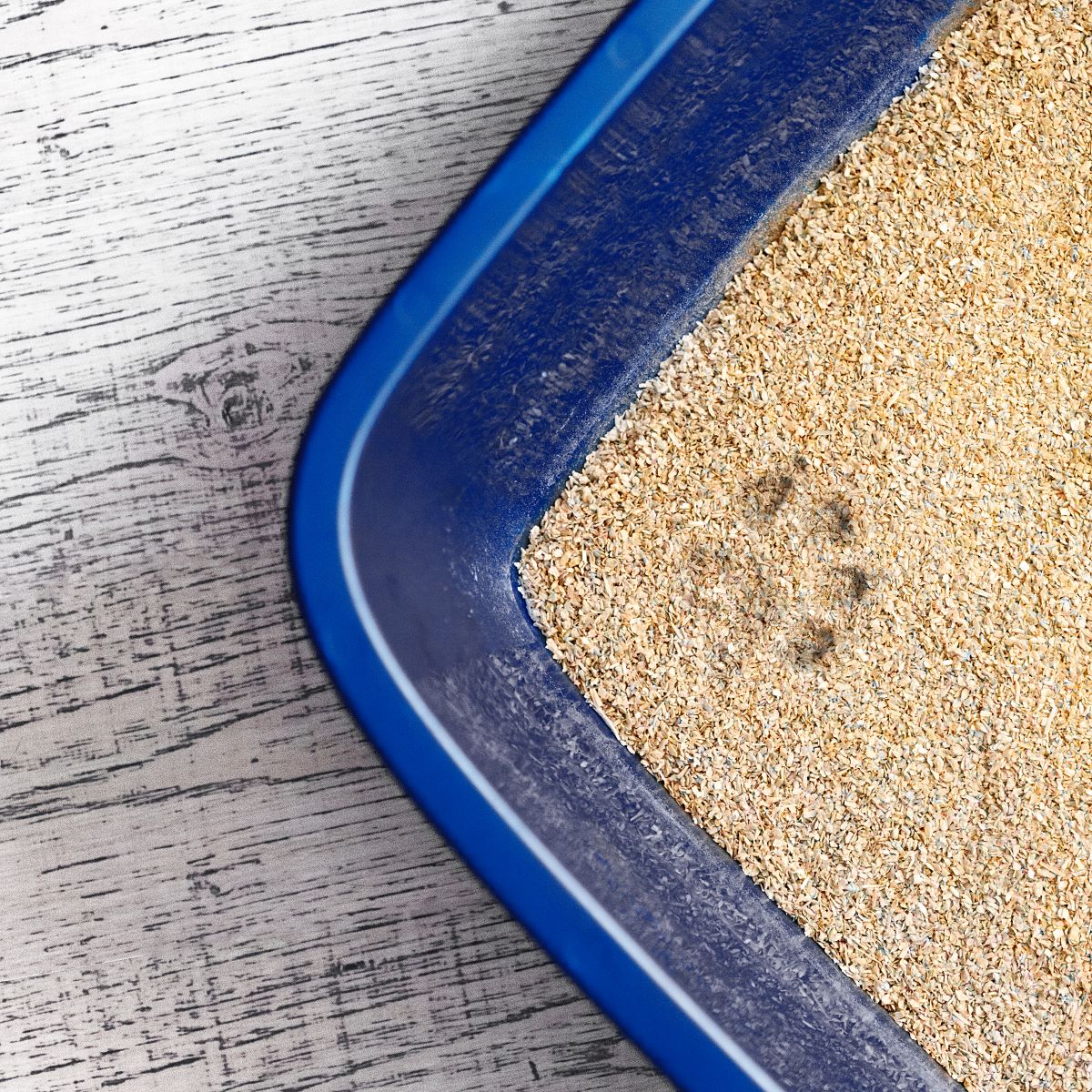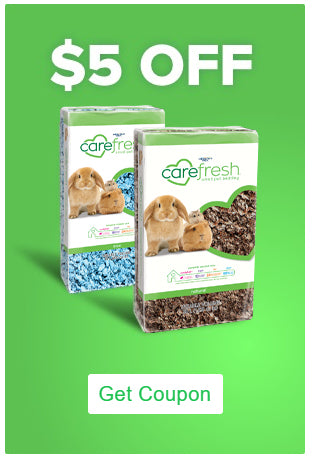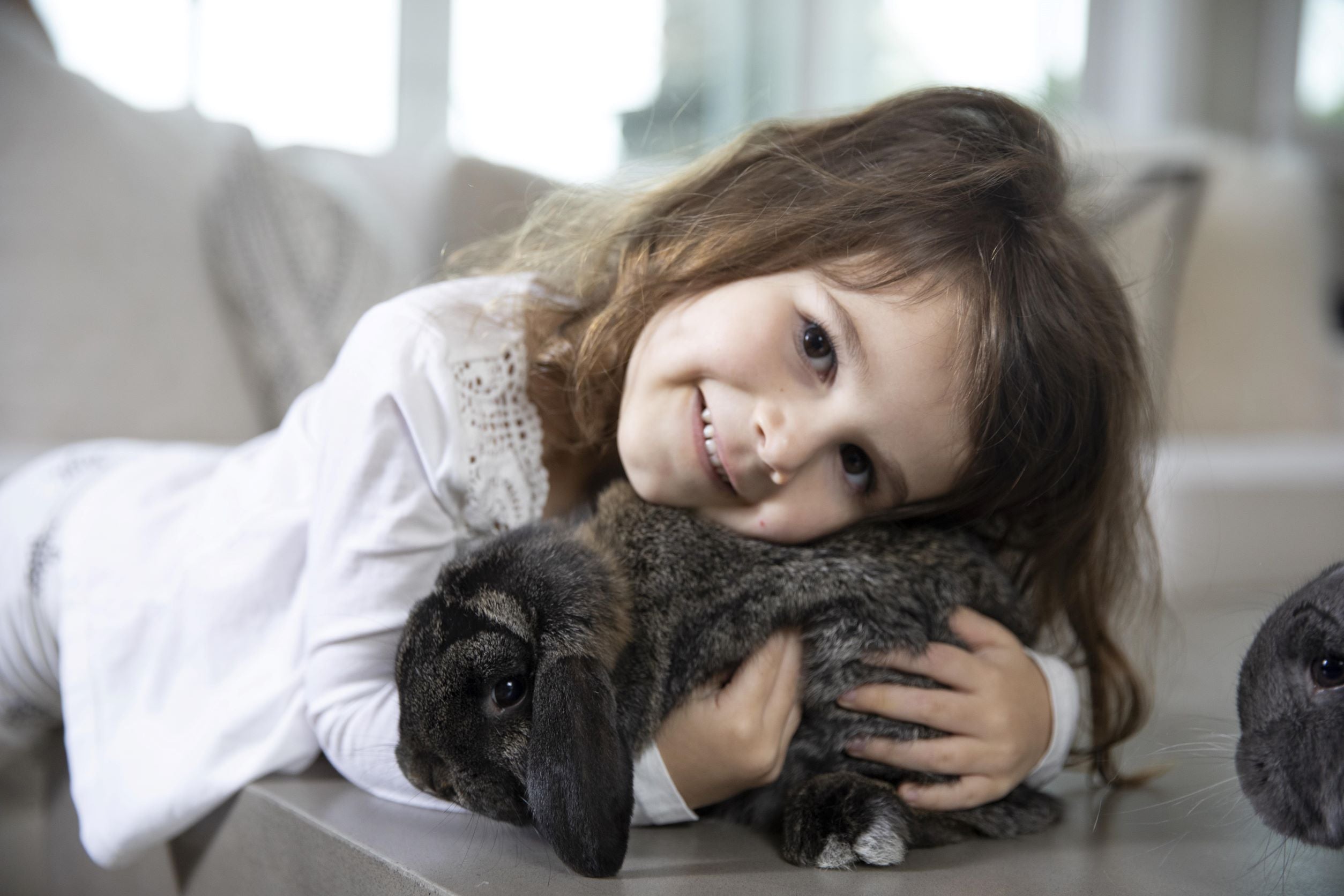How to Transition Your Cat to ökocat Natural Cat Litter
Switching your cat’s litter might seem daunting, but with the right approach, you can make the transition to ökocat natural cat litter smooth and stress-free. ökocat offers a sustainable, eco-friendly alternative to traditional clay litters, made from natural wood fibers that are both biodegradable and effective at controlling odors. Here's a step-by-step guide to help your feline friend adjust to their new litter:
1. Understand Why Transitioning Gradually Is Important
Cats are creatures of habit, and sudden changes to their environment can cause stress or lead to litter box avoidance. Transitioning gradually allows your cat to become accustomed to the new texture, scent, and appearance of ökocat litter, reducing the chances of accidents outside the box.
2. Choose the Right ökocat Litter
ökocat offers several varieties of natural litter, including options for long-haired cats, clumping litter, and non-clumping litter. Select the one that best suits your cat’s needs and preferences. If you're unsure, start with a clumping variety, as many cats prefer it.
3. Start the Transition Process
Begin by mixing a small amount of ökocat litter with your cat’s current litter. A ratio of about 25% ökocat to 75% old litter is a good starting point. Over the course of 7-10 days, gradually increase the amount of ökocat while decreasing the old litter. By the end of the transition period, the box should contain 100% ökocat.
4. Monitor Your Cat’s Behavior
During the transition, keep an eye on your cat’s litter box habits. If you notice any signs of reluctance to use the box, slow down the transition process. Some cats may need a longer adjustment period, and that’s perfectly normal.
5. Maintain a Clean Litter Box
Cats are more likely to embrace a new litter if the box is kept clean. Scoop waste daily and replace the litter as needed. One of the benefits of ökocat is its superior odor control and absorbency, which can make the box more appealing to your cat.
6. Offer Positive Reinforcement
Encourage your cat to use the litter box by offering praise or a small treat when they use it during the transition. Positive reinforcement can help your cat associate the new litter with a pleasant experience.
7. Be Patient
Every cat is different, and some may take longer to adjust than others. Stay patient and give your feline friend the time they need to feel comfortable.
Why ökocat Is Worth the Switch
Switching to ökocat not only benefits your cat but also the environment. Its natural wood fibers are free from artificial fragrances, harmful chemicals, and dyes, making it safer for your cat’s health. Plus, it’s biodegradable and sustainably sourced, so you’re making an eco-friendly choice for your home.
By following these steps, you’ll help your cat transition to ökocat natural cat litter with ease. Soon, both you and your cat will enjoy the many benefits of this sustainable, high-performance litter.
Watch the video!
Read MoreThe Importance of Consistency in Giving Calming Treats to Your Pet
Photo by James Lacy on Unsplash
Consistency is key to keeping your dog calm and content. Just like humans, pets thrive on routine. Regularly giving your dog calming treats can help it manage stress, anxiety, and hyperactivity, but only if it is consistently given. Understanding the role consistency plays can enhance your pet’s well-being and ensure the calming benefits are long-lasting.
Why Consistency Matters for Your Dog
Pets are creatures of habit, and they feel secure when their daily routine remains predictable. Introducing CBD Calming Dog Treats as part of their daily schedule helps create a sense of stability. This consistency can encourage your pet to rely on the calming properties of the treats, helping them feel more relaxed during stressful situations.
Building a Routine for Maximum Effectiveness
One of the best ways to ensure the treats are effective is to incorporate them into your dog’s regular routine. Consistently offering the calming treats at the same time each day helps your pet anticipate when it will receive them. Whether it’s in the morning or before a potentially stressful event, such as a car ride or a visit to the vet, sticking to a schedule can strengthen the calming effects. Your pet will start to recognize the pattern and respond more positively.
How Consistent Use Leads to Long-Term Benefits
When calming treats are given consistently over time, the positive effects can become more pronounced. It’s not just about providing relief in the moment—it’s about creating a long-term solution for your dog’s stress. With regular use, your pet may begin to experience reduced anxiety on a more frequent basis, making daily life more enjoyable for both of you. Consistency reinforces the benefits, helping to build trust between you and your pet.
The Role of Dosage and Timing
Timing and dosage are crucial when giving calming treats. While consistency is important, it’s also essential to follow the recommended dosage to avoid any issues. Giving your pet the right amount of treats at the right time is part of maintaining the routine. Consistency in dosage ensures your pet receives the best possible outcome from the calming treats.
Creating a Peaceful Environment for Your Dog
Consistently using calming treats is just one part of creating a stress-free environment for your dog. A peaceful home environment, combined with a regular routine, can amplify the benefits of the treats. Pairing them with other stress-reducing techniques, such as quiet time or comfortable spaces, helps your dog feel more relaxed.
Choosing Reputable Brands for Quality
When selecting calming treats, it’s important to choose a reputable brand that offers high-quality ingredients. Trusted brands ensure that the treats are made with safe, natural ingredients that can provide your pets with the calming effects they need without any harmful side effects. By choosing a reliable source, you’re not only guaranteeing the consistency of your dog’s routine but also ensuring the treats will be effective and safe.
Consistency is crucial when it comes to giving CBD Calming Dog Treats. By integrating these treats into your pet’s daily routine, you help build trust and create a sense of stability that leads to long-term benefits. As your dog becomes familiar with the routine, the calming effects can become even more powerful, reducing anxiety and stress. With patience and dedication, you can create a peaceful environment where your dog can thrive. So, why not give it a try? Consistency could be the key to unlocking a calmer, happier life for your furry friend.
Read MoreHow to Properly Train Animals: A Comprehensive Guide
Image source:https://pixabay.com/photos/malinois-recall-dog-training-grass-662784/
Training animals can be a deeply rewarding experience, fostering better communication and strengthening the bond between humans and animals. Whether you’re training a dog, cat, horse, or even exotic pet, understanding the basics of proper training techniques is essential for success. This guide provides a comprehensive approach to animal training, covering the principles, methods, and common challenges you may encounter.
Understanding the Basics of Animal Behavior
Before diving into training, it’s important to understand how animals think and behave. Animals communicate through body language, sounds, and actions, and recognizing these cues is the foundation of effective training. For instance, dogs often use wagging tails, ear positioning, or vocalizations to express their emotions, while cats rely on subtle movements like tail flicks or ear rotations. Observing these behaviors allows trainers to respond appropriately and tailor their methods to the specific animal’s needs.
Establishing Trust and Building a Bond
Training is most effective when there is mutual trust between the trainer and the animal. Start by creating a safe and comfortable environment where the animal feels secure. Consistency in your actions and tone will also help establish trust. Spend time bonding with the animal through play, grooming, or simply being present, as this builds a positive relationship that facilitates cooperation during training sessions.
Choosing the Right Training Method
There are several training methods available, and choosing the right one depends on the type of animal and its temperament. Positive reinforcement, which rewards desired behavior with treats, praise, or play, is one of the most widely used and effective methods. Other techniques include clicker training, where a sound signals correct behavior, or leash training, which is common for dogs. Avoid punishment-based methods, as they can lead to fear or aggression, undermining the training process.
The Role of Professional Trainers
Professional trainers play a crucial role in addressing complex behavioral challenges and ensuring effective communication between animals and their owners. They bring expertise in techniques tailored to an animal's specific needs, fostering positive outcomes. For example, leadership dog training focuses on establishing a balanced relationship where the trainer guides the dog with clarity and consistency, promoting trust and obedience. When owners struggle with aggression, anxiety, or unresponsive behavior, professional trainers can provide solutions that are both humane and effective. Their insights not only improve the animal's behavior but also empower owners with the skills to maintain progress long-term.
Setting Clear Goals and Expectations
Clear and realistic goals are crucial for successful training. Start with simple commands or tasks that match the animal’s abilities, such as teaching a dog to sit or a cat to use a scratching post. Break down complex behaviors into smaller steps, rewarding progress along the way. This not only prevents frustration but also ensures the animal understands what is expected.
Consistency is Key
Consistency in commands, rewards, and routines is vital for effective training. Use the same words or gestures for specific commands to avoid confusing the animal. Additionally, ensure all members of the household follow the same rules and training methods. Inconsistent approaches can hinder progress and create mixed signals for the animal.
Timing and Patience
Timing plays a critical role in animal training. Rewards should be given immediately after the desired behavior to reinforce the connection between the action and the reward. Patience is equally important, as every animal learns at its own pace. Celebrate small victories and be prepared for setbacks, as these are natural parts of the training process.
Addressing Behavioral Challenges
Training often involves addressing unwanted behaviors such as biting, jumping, or excessive barking. Instead of punishing the animal, identify the underlying cause of the behavior. For instance, a dog might bark excessively due to boredom, fear, or excitement. Providing appropriate outlets, such as toys or regular exercise, can help redirect such behaviors.
Maintaining Progress Through Reinforcement
Training doesn’t end once an animal has learned a command or behavior. Regular practice and reinforcement are necessary to maintain progress. Incorporate training into daily activities to keep the animal engaged and ensure the learned behaviors remain consistent over time.
The Importance of Positive Interaction
Training is not just about commands; it’s about building a positive relationship. Celebrate successes with enthusiasm and use training sessions as an opportunity to connect with the animal. This creates a sense of partnership, making the training process enjoyable for both the trainer and the animal.
Image source: https://pixabay.com/photos/dog-school-dog-training-rottweiler-672716/
Properly training animals requires a blend of knowledge, patience, and dedication. By understanding their behavior, building trust, and using positive reinforcement, you can effectively teach desired behaviors while fostering a strong bond. Whether you’re a pet owner or an aspiring trainer, this comprehensive guide equips you with the tools to ensure training success. With consistent effort and a compassionate approach, you can create a harmonious and fulfilling relationship with any animal.
Read MoreComplications That Can Arise From Delayed Pet Visits
When pets fall sick, taking them to a veterinarian for complete treatment is crucial. First aid can be handy in emergencies, but a thorough checkup should be done sooner or later. Delaying vet treatments is not advised, as the pets’ health might worsen. Many conditions that seem minor can escalate rapidly, leading to complications that could have been avoided with timely care. This article explores the complications that can arise from delayed pet visits and highlights the importance of seeking immediate care from a Fort Myers emergency vet when pets are distressed.
Progression of Undiagnosed Illnesses
Delaying a vet visit can allow hidden illnesses to progress unnoticed. Conditions like kidney disease, dental problems, diabetes and cancer will gradually worsen the pet’s health if not diagnosed as soon as possible. Untreated kidney disease can lead to toxin build-up in the bloodstream, causing organ damage, while undiagnosed diabetes may result in life-threatening conditions like ketoacidosis. The disease has advanced by the time noticeable signs appear, making treatment and recovery difficult and expensive. For these reasons, veterinarians advise pet owners to bring their pets for regular health check-ups to prevent disease.
Worsening of Minor Injuries
A small wound or pain might seem harmless initially, but it may worsen the pet’s health over time. Physical pain such as limping indicates fractures, joint issues and ligament tears, which might worsen and paralyze the pets if not treated properly. Additionally, bruises and wounds should be appropriately treated with pet-safe antiseptics to prevent germs from entering the body. Internal bleeding can turn fatal if not diagnosed and treated at the earliest. Addressing injuries and wounds early prevents unnecessary pain and reduces the risk of long-term health issues. For internal bleeding or injuries requiring immediate attention, UrgentVet in Fort Myers, FL, provides timely and expert care to ensure your pet's condition doesn’t escalate into a life-threatening situation.
Complications From Parasite Infestations
Parasites like fleas, ticks and worms that enter the body through untreated wounds, contaminated food and dirty clothes are harmful to pets. Fleas can cause itching, allergies, skin infections and even anemia. Internal parasites like roundworms and hookworms enter the digestive tract and cause diarrhea, weight loss and malnutrition. Heartworms are dangerous as they cause heart failure in dogs. Some parasites can even transfer diseases from pets to humans. Hence, proactive measures should be taken to eliminate parasites from homes and keep pets safe and healthy.
Unmanaged Chronic Conditions
If the pet has chronic conditions like arthritis, allergies or thyroid disorders, constant monitoring and care are required. Delaying vet visits for such conditions will cause complications for pets in the future. For example, untreated arthritis may cause severe joint damage, while thyroid imbalances can affect the pet's metabolism and energy levels. If left untreated, allergies can lead to persistent skin infections and discomfort. Pets with chronic conditions should be assessed frequently. This helps the vet to evaluate the pet’s health and navigate the treatment accordingly. These measures will save the pet from developing complications in the future.
Behavioral Changes Indicating Health Problems
Unusual behavioral changes in pets often indicate underlying health issues that require immediate attention. Some pets show increased agony, whining and loss of appetite, while others remain tired and aggressive with their owners. For instance, dogs that are usually active tend to remain rested and withdrawn when they fall sick. Psychological trauma, like fights with other animals and death, can also cause behavior change in pets. Ignoring these signs or delaying a veterinary visit can allow the underlying issue to worsen, leading to unnecessary suffering or more complex treatments.
Dental Issues Leading to Systemic Infections
Dental issues in pets are often overlooked, and if left untreated, they can lead to several health problems in the future. Problems such as tartar buildup, gum disease, or tooth decay can allow harmful bacteria to enter the bloodstream, known as bacteremia. Once they enter the bloodstream, these bacteria can travel to vital organs like the heart, liver, and kidneys and cause life-threatening complications. Pets with dental issues have bad breath, difficulty breathing, and bleeding gums, which should be treated immediately. Neglecting dental issues in pets will cause severe health complications. Hence, it is essential to treat them immediately.
Emergency Situations Becoming Life-Threatening
Delaying veterinary care for pets during emergencies can have serious consequences. Conditions that may seem minor at first—such as vomiting, difficulty breathing or ingesting a foreign object—can rapidly escalate into serious threats if not addressed and treated beforehand. For example, a pet that swallows a small toy might develop an intestinal blockage, leading to severe pain, infection, or even organ failure. Breathing difficulties can turn fatal if not treated as soon as possible. Pet owners should be aware of these consequences and act swiftly if their pets show any signs of distress. Pet owners in urgent situations can rely on UrgentVet to provide compassionate and timely care.
Pets encounter health problems throughout their lives, which require immediate attention and treatment. Severe conditions like malignant diseases, physical pain, internal bleeding, digestion problems, breathing difficulties and parasitic infections can escalate into serious threats if not treated as soon as possible. Understanding the seriousness of such conditions, pet owners should take their pets to a vet when they fall sick, ensuring proper care and treatment.
Read MoreLegal Responsibilities of Pet Owners: What You Really Need to Know
Last week, a family walked into my training center with a heartbreaking story. Their beloved Golden Retriever had nipped a delivery driver, and they faced serious legal consequences. Stories like these push me to share what I've learned over my years as a dog trainer. The Centers for Disease Control reports that 4.5 million dog bites occur yearly in America, with medical care costs reaching $1,000 per visit. These numbers keep me up at night.When Love Meets Law: Essential RequirementsThe joy in a puppy's eyes shouldn't blind us to our legal duties. During my Tuesday training sessions, I spend the first hour helping families understand the basics. Our city demands three crucial things:Your pet needs a current license. Think of it as your dog's driver's license - without it, you're breaking the law. I learned this lesson early when animal control issued warnings at our local dog park. Now I mark renewal dates on my calendar and remind my clients to do the same.Vaccinations protect more than just your pet. Rabies shots aren't optional - they're mandated by law in every state. My rescue partner Lisa faced a $500 fine last spring when she missed her dog's rabies booster by two months.Proper identification saves lives and lawsuits. Your pet must wear current tags. I've reunited countless lost dogs with their families thanks to updated ID tags. Microchipping adds an extra layer of protection, though laws vary by state.Understanding Your LiabilityThe numbers shock most of my clients. ConsumerShield reports that dog bite settlements often reach $30,000 to $50,000. Some cases climb even higher. I remember Tom and Sarah, whose unfenced dog caused a bicycle accident. Their insurance covered the $25,000 settlement, but their premiums doubled.Property damage brings its own headaches. Last summer, a German Shepherd from my obedience class dug up a neighbor's prized rose garden. The owner paid $3,000 in damages. We now spend extra time on boundary training.Your homeowner's insurance might not cover everything. Many policies exclude certain breeds or require additional coverage. I urge my clients to review their policies carefully. Better to know the gaps before problems arise.A solid training program reduces your risk. Courts look favorably on owners who invest in professional training. Document your efforts. Keep records of classes, certifications, and vet visits. These papers become gold during legal disputes.Basic Care Laws You Must FollowWorking with animal rescue groups opened my eyes to minimum care standards. The laws seem obvious, but the details matter. Every month, I visit homes where owners mean well but fall short of legal requirements.Fresh water becomes a sticky point in summer. The law demands constant access to clean water. During a heat wave last July, I helped a family install an automatic waterer after their neighbor reported them. A simple fix prevented legal trouble.Shelter standards vary by region. Here in Michigan, my clients must provide protection from sun, rain, and snow. Indoor dogs need proper ventilation and space to move. One family built a beautiful outdoor kennel, only to learn it violated size requirements. Always check local codes before construction.Exercise needs to spark heated debates. While no law specifies daily walk times, anti-cruelty statutes require adequate exercise. I tell my clients to document their exercise routines. Photos of daily walks create valuable records.Navigating Public SpacesLocal leash laws catch many owners by surprise. Just yesterday, I watched animal control issue tickets at River Park. The six-foot leash rule applies even to "well-trained" dogs. One client paid $200 for letting her Border Collie run loose, despite perfect recall.Waste management rules protect public health. I carry extra bags on every walk - it's not just courteous, it's law. Most cities impose hefty fines for leaving dog waste. My client Steve learned this through a $150 ticket caught on park cameras.Breed restrictions pop up everywhere. Before moving to a new neighborhood, check local ordinances. Some communities ban certain breeds entirely. Others require special insurance or muzzles in public. These rules change often - I update my training materials monthly to keep pace.Public transportation brings extra challenges. Last week, the downtown bus driver refused entry to a client's unmuzzled Great Dane. We now practice muzzle training before attempting bus rides. Know the rules before you travel.Housing and Your PetRental challenges fill my inbox daily. The law allows landlords broad powers over pet policies. But it also provides important protections.Service animals enjoy special rights under federal law. But emotional support animals? Different story. I spend hours helping clients understand the legal distinctions. One family nearly faced eviction over confusion between these categories.Standard leases often include pet clauses. Weight limits, breed restrictions, and extra deposits typically stand up in court. My client Maria won her deposit dispute only because she documented every inch of her apartment before moving in.Insurance companies influence housing options. Some won't cover certain breeds. Others require special riders for dog owners. I advise checking insurance policies before signing any lease. Prevention beats problems every time.Smart Prevention StrategiesDocumentation saves careers. A training client named Mark runs a home business. His insurance company demanded proof of responsible pet ownership. We created a simple system: a digital folder with all vital records. His coverage continued without a hitch.Training records matter in court. Last fall, a Labrador from my advanced class got spooked by fireworks and knocked down a child. The owner's documented training history helped reduce their liability. The judge noted their "pattern of responsible ownership."Smart owners carry extra insurance. Pet liability policies cost less than one emergency vet visit. After watching countless families struggle with unexpected bills, I consider it essential protection. Research local laws before problems arise. Every spring, new pet ordinances pop up. I spend Sunday mornings reviewing city council updates. Two weeks ago, they changed off-leash park rules. Several clients avoided fines because they stayed informed.Build community connections. Join local pet owner groups. Attend council meetings about animal regulations. My most successful clients network with other responsible owners. They learn from shared experiences and stay ahead of legal changes.ConclusionAfter fifteen years of training dogs, one truth stands clear: legal responsibility flows naturally from good pet care. Every regulation exists because something went wrong somewhere. We can learn from those mistakes.Take it from someone who sees these issues play out daily: small preventive steps today prevent major headaches tomorrow. Your pet's welfare and your peace of mind depend on understanding these responsibilities.
Read MoreFilter - Key Words








 email us
email us